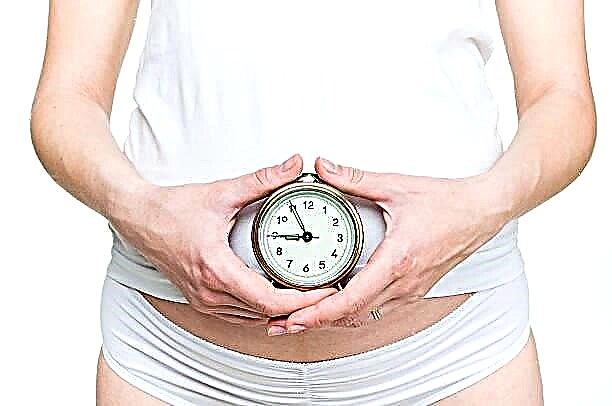Colic in newborns is common. Every third baby cries for several hours a day for no apparent reason. This period brings not only torment to the baby, but also makes the parents nervous, trying to help the baby in all possible ways.

Colic in a newborn
What is colic
Infant colic has been a problem for many parents. They torture babies between two weeks and three months of age. Some children suffer from pain for a little longer. On average, the colic subside by six months. During this period, the baby's nervous and digestive systems are just being formed. He adapts to a new world for him. As a result, discomfort appears, to which the baby reacts with crying.
There is no definite answer to the question of what colic is. Most experts are inclined to believe that this is increased gas production, which causes inconvenience to the baby. Some people attribute regular crying to the immaturity of the nervous system or increased intracranial pressure. Proponents of the theory cite various facts as its confirmation. For example, colic is worse when the weather changes. Meteosensitivity, in their opinion, is more likely due to migraines than abdominal pains.
Note! In any case, colic is a natural process that takes place over time, as the baby grows up. The main thing is to make sure that the baby is healthy, well fed, he is not cold and not hot.
If there is no apparent cause for concern and the infant continues to cry, it is believed that the problem is colic.
Causes of colic in newborns
The true causes of colic are unknown to medicine. Pediatricians identify a number of factors that provoke their appearance:
- Improper attachment of the baby to the breast or bottle. As a result, while eating, he swallows air, which enters the intestines and causes a lot of inconvenience;
- Overeating of the baby, small intervals between feedings;
- Early transfer to formula and cessation of breastfeeding;
- Failure to comply with the proportion when preparing food for children of "artificial". Problems can arise if the mixture is diluted poorly. Lumps of powder are difficult to digest and more difficult to digest;
- Frequent transition from one mixture to another or the choice is not suitable for the baby;
- Nutrition for a nursing mother. In the first month, it is recommended to adhere to a diet, eating low-allergenic foods.
Komarovsky explains that colic is a necessary stage in the development of babies. They get used to new food, reacting to it with intestinal spasms. When the body adapts, everything will return to normal and the crying will stop.

Satisfied grown baby
The main symptoms
It is possible to determine that the baby is worried about colic by the following signs:
- The child becomes restless in the evening, at about the same time. Usually the peak falls on the interval from 18 to 22 hours;
- He has a normal temperature, no symptoms of illness, he is fed and comfortably dressed, but continues to scream;
- The kid twists with his arms and presses his legs to his stomach, which is tense and swollen to the touch, increased in size;
- The baby cannot be distracted, the attention cannot be diverted, even the closeness of the mother and motion sickness do not save, he continues to sob;
- His cry does not stop, the intensity increases at times when the pain intensifies;
- After the gas passes, the child becomes better, he calms down, goes into contact with loved ones.
Babies born prematurely have a higher risk of developing colic than babies born on time. This is due to a more immature organ system and a lack of essential enzymes.
At what age does colic begin
When a newborn begins to have colic, it does not depend on the way it is fed. It happens that children who eat formula do not suffer from tummies, and babies on guards suffer for months and vice versa.
Colic usually begins when the baby is 1.5-2 weeks old. They cannot be confused with anything:
- Crying attacks do not go away and last up to three hours, sometimes more;
- The intensity increases in 1.5-2 months. At this time, children become the most restless, crying is the longest.

The baby is crying
Breastfeeding
Breastfed babies suffer from colic if their mother abuses junk food:
- sweets and baked goods;
- citrus fruits;
- legumes;
- spicy, smoked, fried.
The nutrition of a nursing woman should be varied, you should not limit yourself. The main thing is for the first time to refuse food that increases gas formation, and to use gentle methods of heat treatment. Highly allergenic foods, such as red berries and fruits, citrus fruits, should be tasted in small portions, observing the baby's reaction. Sometimes they recommend that the mother exclude dairy products, explaining the baby's poor health by a reaction to cow protein.
Colic is also attributed to lactase deficiency (lactose is an enzyme involved in the breakdown of the sugar in breast milk). As a result, it enters the intestines in large quantities and provokes the growth of bacteria. This leads to increased gas production and spasms.
Note! Be sure to give up alcohol, smoking. You can not use antibiotics, with rare exceptions. There are medications that are compatible with feeding, which the attending physician will certainly announce.
Often mothers, seeing a crying baby, offer him a breast, which further burdens the digestive system. The body does not have time to cope with large amounts of food, which leads to discomfort. It is always better to underfeed a baby than to overeat. It will make up for the loss the next time the pain goes away.
Bottle-fed
Colic in a newborn sometimes begins when he is weaned and transferred to formula. The digestive system does not have time to rebuild and fails, which leads to increased gas production and pain.
If the baby does not take the nipple of the bottle correctly, then he swallows air. The bubbles cannot escape on their own and cause discomfort to the baby. A sudden transition to artificial feeding in the first months of a baby's life can provoke spasms, to which he reacts by crying. You cannot often transfer from one mixture to another, the baby must eat products of the same brand. Only the packs change, depending on the age of the child. A reasonable switch to a different diet is due to health problems and pediatrician recommendations.
How long does colic last
How long colic will last in a newborn is impossible to predict in advance. When the body adapts to the new environment, food, the discomfort will stop. This means that the digestive system has become more perfect, and the baby has moved on to a new stage of development.
When newborn colic goes away:
- Usually lasts up to three months of age, some babies have tummy problems for much longer. By six months, the period ends, and the baby becomes calm and smiling;
- The presence of allergies can affect the intensity and duration. Also, for example, it is believed that babies with an umbilical hernia tolerate this period more painfully;
- More often boys suffer from tummy pains longer than girls.
The attacks usually occur daily and last about three hours on average. For some children, they go away in a quarter of an hour, but this is very rare. At this time, the baby practically does not stop screaming. Between attacks, he is cheerful and active, his appetite does not suffer, he gains weight, grows and develops.

Healthy cheerful child
General well-being is not disturbed, therefore colic is not equated with pathology, which means that treatment is usually not required. Methods are used that can alleviate the condition of babies, reduce pain. Which method to choose depends on the baby's reaction. Massage helps some, while a warm diaper on the stomach helps others. Many babies are saved by skin-to-skin contact with their mother.
Note! It is believed that colic occurs at least three times a week and does not last less than 20 days.
Breastfeeding
Babies who are breastfed have less colic. They are not so intense and pass much faster than in children of "artificial". Breast milk contains all the nutrients and vitamins a baby needs. It is 80 percent water and is easily absorbed by the digestive system. Therefore, the baby quickly gets used to it, and the discomfort disappears.
It is important to establish proper attachment so that the baby does not swallow air. You can get rid of it if you vilify the child after eating in an upright position. The baby puts his head on his mother's shoulder and pushes out the excess air. It is enough for him to spend 15 minutes like this. It is also recommended to lay the child more often on his stomach in order to train the muscles. This will help him cope with gaziks on his own. This should be done between feedings, but not immediately after eating, otherwise the baby may spit up. Also, after eating, newborns fall asleep, and it is not recommended to leave them lying on their stomachs. This situation increases the risk of sudden infant mortality.

Unwanted sleeping position
Bottle-fed
Infant and mixed-fed babies are more prone to digestive disorders. It is necessary to adhere to existing dietary recommendations, do not exceed portions and do not deviate from the schedule.
If the child reacts well to the mixture, the parents give it according to the instructions and prepare it correctly, then the colic ends by 3-4 months. Such babies must be supplemented with water in order to exclude constipation and aggravation of the condition. The mixture is not considered light food, so extra liquid is essential.
There are special anti-colic mixtures, they contain bacteria that are close to organisms found in the intestines of the child. Therefore, he quickly gets used to them, the digestive system adapts. There are also bottles on sale with longer and curved nipples. This is done so that they are filled to the maximum with the mixture, and the baby does not swallow air.
Komarovsky considers such inventions to be a publicity stunt. He says colic is not a dangerous condition that requires urgent attention. Manufacturers of products for children are playing on the nerves of parents, giving them the opportunity to help the newborn. Such remedies, like numerous drugs for colic, are not harmful. They are absolutely safe to use.
When colic goes away
Colic goes away on its own in 2.5-3 months. Since their reasons are not fully understood, and the methods of treatment are not always effective, then most often it remains only to wait. In any case, you need to try to alleviate the baby's condition, if you cannot do this on your own, consult a pediatrician for advice.
How to understand that colic is over
When colic in babies ends, it is clear immediately that the child's behavior changes. He becomes more calm, even in the evenings he is in a good mood. His belly is soft and the gases go away on their own. The baby is no longer tormented by spasms, parents can relax, adaptation was successful.

A happy family
The state of the mother affects the well-being of the baby:
- mood;
- susceptibility to stress;
- tiredness and overwork.
The more positive she is, the easier the baby will endure a difficult period for him. Children read the emotions of loved ones.
Important! There is no need to perceive colic as a disease and look for other symptoms in the child. If the baby is healthy and active and cheerful during the period without spasms, you should be patient and take what is happening as an inevitable stage in the development of the baby.
Why colic happens in the evenings
Colic usually occurs in the evening and at night. This can be influenced by the following factors:
- The nursing mother ate unwanted foods during the day. Substances that provoke discomfort in the digestive system of the crumbs have accumulated and began to act;
- The kid has accumulated emotions during the day, joyful or sad, the rate of metabolic processes has increased, the body cannot cope with the production of enzymes, which leads to unpleasant sensations;
- During the day, the gases accumulated in the abdomen become more, so the strength of the spasms increases, and the child cannot tolerate pain.
It is necessary not to overload the crumbs before going to bed with acquaintances and games, monitor nutrition and do not forget about massage. Even if he does not suffer from pain, strengthening the muscles will benefit him. It’s not only an activity, but also a way to strengthen the relationship with the baby, to bond and bond.

Massage
Could it be morning, afternoon
Colic can begin at any time of the day, but its intensity increases in the evening. In the morning, the baby is still awake, full of energy and may not pay attention to discomfort. By evening, he gets tired and acutely perceives any changes. The intensity of the pain increases, the spasms intensify, especially if the baby's condition is not relieved, and he begins to cry.
Colic in newborns is a physiological process that accompanies the growing up of a child, his adaptation to the outside world. Not everyone has them, but if they happen, you should not be afraid of them. When the child is healthy and feels great at other times, you need to take care of how to relieve his condition during the period of cramps. Colic will surely pass when the baby and his digestive system adapt to the new food. The difficult period will end, it is worth remembering this and not panic.



